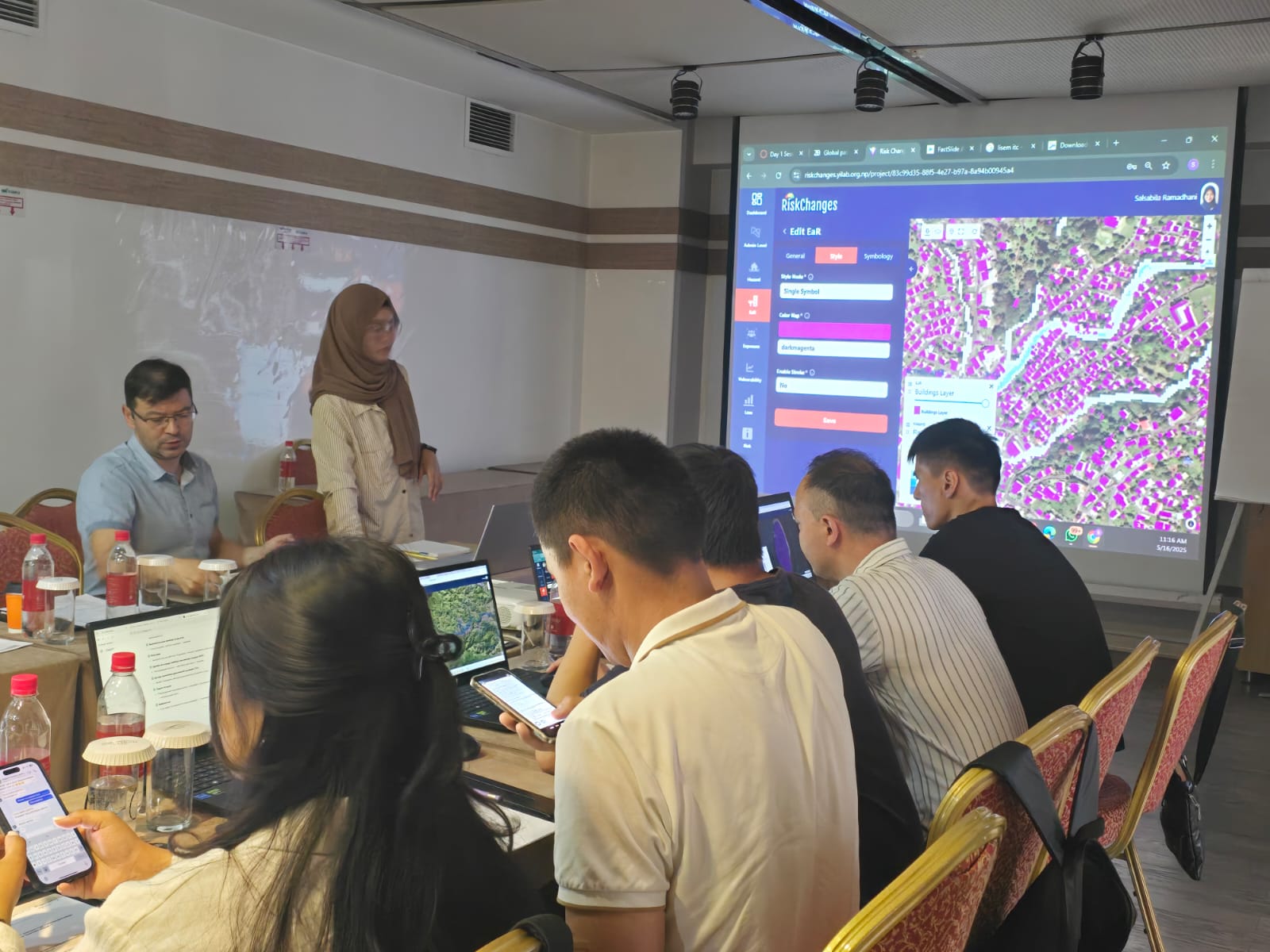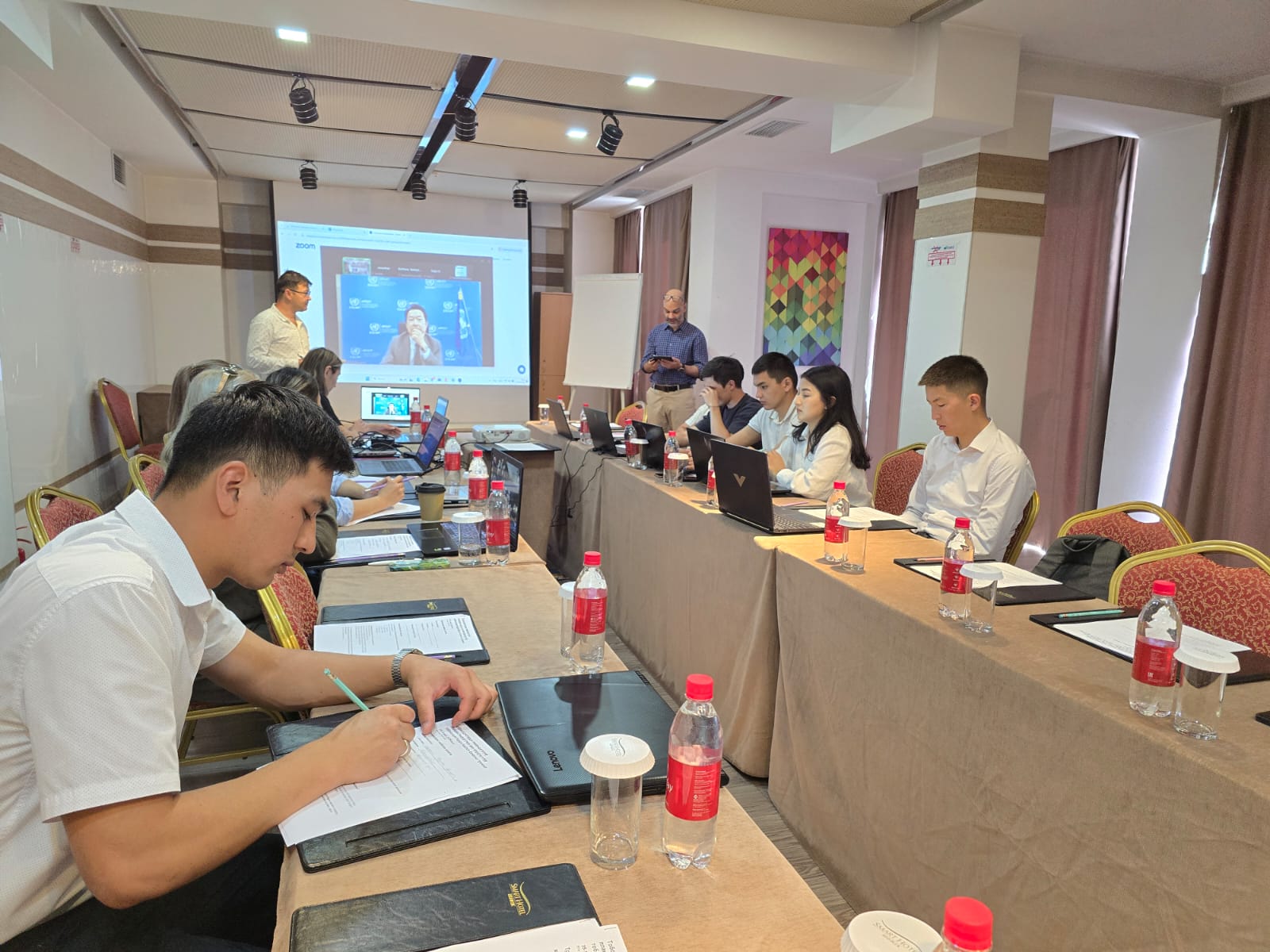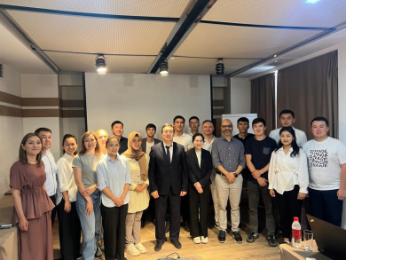On 15–16 May 2025, the Ministry of Emergency Situations (MES) of Kyrgyzstan hosted a two-day training workshop titled “Multi-hazard Risk Assessment for Risk-Reduction Planning.” Organised by UNOOSA/UN-SPIDER in partnership with ESCAP-APCICT, the Geoinformatics Center (Asian Institute of Technology) and ITC–University of Twente, the course addressed the country’s overlapping threats from earthquakes, landslides, floods and climate-related extremes.
Aims and audience
Sixteen Kyrgyz Ministry of Emergency Situations officials—specialists in disaster management, GIS, and strategic planning, including four women—took part. By the close of the workshop, they were expected to:
· distinguish hazard, exposure, vulnerability and risk concepts;
· assemble the spatial data needed for multi-hazard analysis;
· create exposure and vulnerability layers in the RiskChanges platform; and interpret risk maps to guide mitigation choices.
Programme highlights
Day 1: UN-SPIDER and the National Disaster Reduction Centre of China introduced recent trends in satellite-based hazard mapping, followed by ITC’s lecture on ICT for risk visualisation. Practical sessions led by AIT walked participants through building an elements-at-risk database and entering vulnerability data in RiskChanges.
Day 2: AIT explored ICT applications for disaster response, after which teams calculated potential losses, produced preliminary risk maps for Bishkek Province and compared two mitigation scenarios. ITC closed with a session on monitoring recovery and “build-back-better” progress.
All lectures, datasets and recordings were uploaded to a dedicated Canvas workspace, ensuring participants can revisit the material and share it with colleagues.
Immediate outcomes
1. Baseline risk layers (hazard, exposure, vulnerability) for a pilot district were generated and handed to the MES GIS unit.
2. Regional peer network Newly trained analysts were added to UN-SPIDER/APCICT’s Central Asia community of practice for ongoing support.
A quick-fire survey showed 94 % of participants rated content relevance as “high” or “very high,” and self-assessed confidence to apply RiskChanges at 4.1 / 5. Requests focused on deeper work with local datasets and future climate-change scenarios—needs UN-SPIDER plans to meet through an advanced clinic later in 2025.

Next steps
Building on the Bishkek pilot, the organising partners will refine Kyrgyz exposure layers with higher-resolution building and population data, deliver an advanced scenario-modelling module.
Access the course materials
· Canvas workspace (slides, recordings, datasets): https://canvas.instructure.com/courses/11826362

